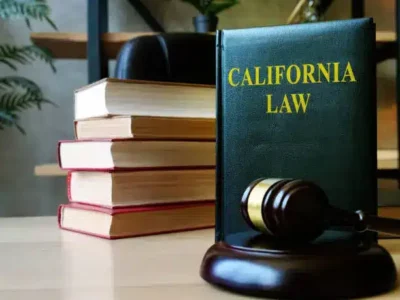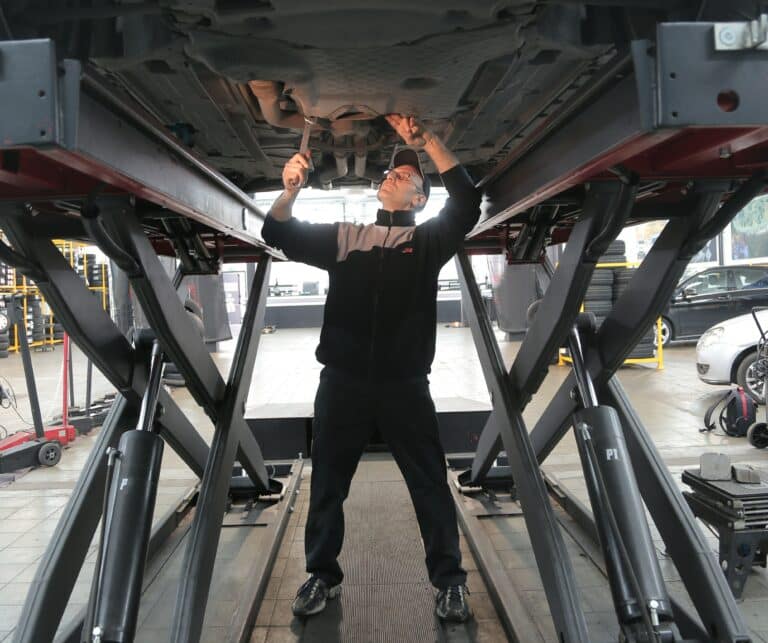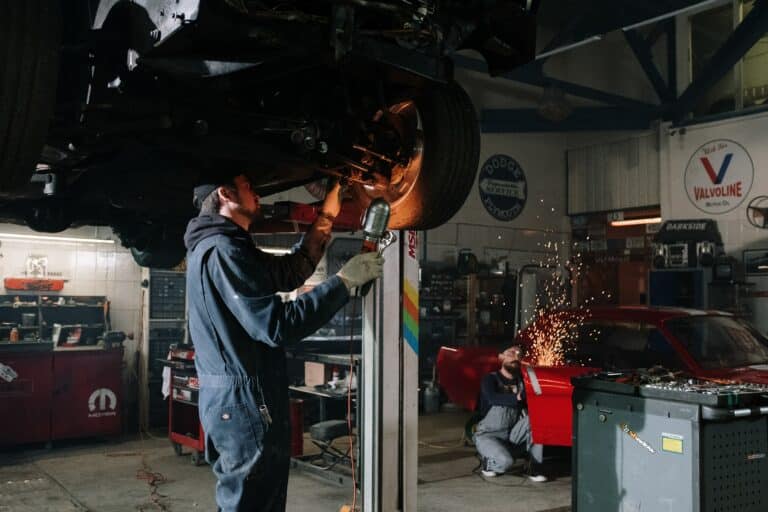
Lemon law is a consumer protection law that applies to the purchase of new and used vehicles in California. However, one question that often arises is whether the lemon law also applies to private sales in California.
Understanding The California Lemon Law
The California Lemon Law is a piece of consumer protection legislation designed to safeguard California consumers who have experienced repeated issues with their purchased or leased vehicles. This law applies to new and used cars alike, whether they were purchased from car dealerships or private sellers, provided they are still under the manufacturer’s warranty.
The law stipulates that if a vehicle proves to be a ‘lemon,’ i.e. it has continuous and unresolvable defects that significantly impact its use, safety, or value, the consumer is entitled to certain legal remedies. These may include a replacement vehicle or a refund of the purchase cost, minus a reasonable fee for usage.
Before purchasing a used car, it is strongly advised that consumers have a mechanic inspect the vehicle to identify any existing issues or potential red flags. Consumers should also keep all repair receipts as proof of the defect and repeated attempts to get it fixed in case they need to invoke the California Lemon Law in the future.
In essence, the California Lemon Law serves to balance the scales between consumers and manufacturers, ensuring that California consumers are not left with a faulty vehicle and no recourse for resolution.
How Do I Know If My Used Car Is A Lemon?
To determine if your motor vehicle is a lemon under the California Lemon Law, several factors need to be considered. The law applies when a significant defect that substantially impairs the use, value, or safety of the vehicle remains unresolved after a reasonable opportunity to repair the problem within the warranty period. Motor vehicles, under this law, encompass new and used cars, pickups, trucks, and SUVs. Even some motorhomes and motorcycles can sometimes fall under the scope of the California Lemon Law.
Common issues that might indicate your vehicle is a ‘lemon’ include severe engine problems, transmission failures, brake defects, and other significant safety issues. Under the California law, repeated unsuccessful repair attempts for the same problem, or an excessive amount of time that the vehicle spends in the repair shop, may suggest that the car is a lemon.
It’s important to note that the California Lemon Law also places some responsibility on the buyer to exercise due diligence. This means that before purchasing a used motor vehicle, you should thoroughly inspect it, ideally with the help of a trusted mechanic. Under the California law, keeping a clear and detailed record of all repairs and inspections related to your vehicle is crucial.
Additionally, the law stipulates that the seller, whether a dealership or private party, has an obligation to conduct all necessary repairs during the warranty period to try and fix any substantial defects. If, after a reasonable opportunity, the issue still isn’t resolved, the California Lemon Law would then apply, providing the buyer with certain rights and remedies. This law is purposed to protect and assist consumers when they’ve exhausted all other options and still the motor vehicle remains faulty.
California Lemon Law In Regards To Private Car Sales
When it comes to private car sales, the California Lemon Law has certain limitations that consumers should be aware of. For instance, a vehicle purchased from a private seller is not covered by this law if the manufacturer’s warranty has expired. This means that even if you discover significant defects in the vehicle after purchase, you may not be able to seek legal remedies if the seller refuses to address the issues or refund your payment.
Furthermore, the law does not obligate the private seller to disclose any pre-existing problems with the vehicle. This is in stark contrast to dealerships, which are legally required to inform potential buyers of any known issues.
Moreover, California’s lemon law may not provide protection if the vehicle was “sold as is,” a common term in private sale contracts. It essentially means that the buyer accepts the vehicle in its current state, and the seller is not liable for any future problems that may arise.
It’s therefore crucial to thoroughly inspect a vehicle and understand the terms of the sale before finalizing a transaction with a private seller. This will help protect your rights and ensure a fair deal.
Filing Lemon Law Claims in California
Filing a lemon law claim in California involves a series of steps. Firstly, the consumer must provide the manufacturer with a reasonable number of attempts to repair the vehicle’s defects. This usually involves taking the vehicle to a repair shop authorized by the manufacturer. If the issues persist after multiple repair attempts, the consumer can then initiate a lemon law claim.
Upon deciding to take legal action, the consumer should gather all pertinent documents related to the vehicle. This includes the sales contract, repair receipts, and any correspondence with the manufacturer or repair shop. These documents serve as crucial evidence to support the claim that the vehicle is a ‘lemon.’
Next, the consumer must send a demand letter to the manufacturer, outlining the vehicle’s issues and their desire for a refund or replacement. It’s advisable to send this letter via certified mail to ensure receipt. The manufacturer is then given a final opportunity to fix the vehicle.
If the manufacturer fails to provide a satisfactory solution, the consumer can then file a lawsuit. It’s important to note that legal action can potentially lead to court costs and attorney fees. However, if the court rules in favor of the consumer, the manufacturer may be ordered to cover these costs, in addition to providing a refund or replacement vehicle.
In essence, the lemon law claim process requires patience and meticulous record-keeping. By understanding their rights and following the correct procedures, California consumers can navigate this process and seek recourse for their lemon vehicle.
You Might Need A California Lemon Law Attorney
Hiring a California Lemon Law attorney can be a crucial step for consumers who find themselves in a dispute over a faulty vehicle. An experienced attorney understands precisely how the California Lemon Law applies and can guide you through the necessary legal processes.
One of the key benefits of hiring an attorney is their expertise in lemon law arbitration. Arbitration is often a less formal and comparatively faster way of resolving disputes than going to court. However, navigating the process can be complex. An attorney can provide invaluable advice and representation, ensuring you have the best chance of a favorable outcome.
Your attorney can also help you understand what the law requires in terms of evidence and procedure. For instance, the law may require you to provide specific documentation or meet certain deadlines. Missing these could jeopardize your claim. An attorney will ensure you meet all these requirements.
In some cases, you may need to take your claim to a small claims court. This could be a daunting prospect without legal advice. A Lemon Law attorney can prepare you for this process, guiding how to present your case and what to expect.
Finally, an attorney can help you understand and protect your legal rights. They can advise you on what you are entitled to under the California Lemon Law and ensure that these rights are upheld throughout the proceedings. In essence, hiring a California Lemon Law attorney can provide you with the necessary legal knowledge, support, and confidence to navigate this complex process and achieve a resolution.
Lemon Law Attorneys of California
Contacting a Lemon Law lawyer, particularly from the Lemon Law Attorneys of California, can be pivotal in navigating the complexities of used car lemon law, particularly in cases involving private car sales. These attorneys specialize in the exacting demands of the California Lemon Law, offering expertise and guidance tailored to each individual case.
When it comes to vehicles purchased from private sellers, the situation can often be more complex. It is not always clear-cut whether the law protects these purchases, especially if the vehicle was sold “as is.” These complexities underscore the importance of having a knowledgeable California Lemon Law lawyer by your side. They can help dissect the terms of the sale, identify potential recourse, and guide you through the necessary steps to protect your rights.
The Lemon Law Attorneys of California are well-versed in the intricacies of the used car lemon law, and they bring that knowledge and experience to assist clients effectively. They understand that each case is unique, with its own set of circumstances and challenges. Their in-depth understanding of the law, paired with commitment and diligence, makes them a crucial ally in any Lemon Law case, ensuring that the rights of California consumers are defended and upheld.
Frequently Asked Questions
Does Lemon Law apply to private vehicle sales in California?
Unfortunately, Lemon Law does not apply to vehicle purchases from private sellers in California. However, you may still have recourse through other legal avenues such as auto fraud or breach of contract.
How many repair attempts are considered ‘reasonable’ under the California Lemon Law?
The number of repair attempts considered reasonable varies depending on the type of defect and the severity. Generally, it is recommended to give the manufacturer at least three attempts before pursuing legal action.
Can I file a Lemon Law claim for a used vehicle?
Yes, the California Lemon Law covers both new and used vehicles that are still under warranty. However, it’s important to note that the law has different requirements and limitations for used vehicles compared to new ones.
Does the California Lemon Law affect the sales tax on a vehicle purchase?
No, the California Lemon Law does not directly affect the sales tax on a vehicle purchase. The law primarily pertains to the condition and functionality of the vehicle. However, if a consumer receives a refund for a lemon vehicle, the refund should include the paid sales tax.
Is getting a car inspected necessary before filing a Lemon Law claim?
While not strictly necessary, having your car inspected by a third-party mechanic can provide additional evidence to support your claim. The inspector can document any recurring issues with the vehicle and may be able to provide an expert opinion on whether the defect is significant enough to qualify under the Lemon Law.
How does the Lemon Law affect the purchase price of a vehicle?
If a vehicle is deemed a ‘lemon’ under the California Lemon Law, the manufacturer is required to refund the purchase price or replace the vehicle. This includes the cash price paid for the vehicle, finance charges, and any amounts paid by the consumer at the point of sale like sales tax, registration fees, and first monthly installment.
What types of motor vehicles are covered under the California Lemon Law?
The California Lemon Law covers new and used cars, trucks, SUVs, motor homes, and motorcycles that are sold or leased in California, as long as they come with a manufacturer’s new vehicle warranty. This includes business-use vehicles and even vehicles purchased as part of a private sale, provided they are still under the manufacturer’s warranty.










